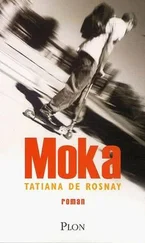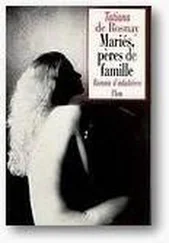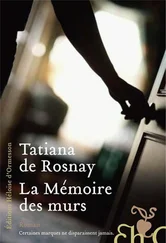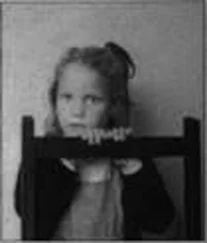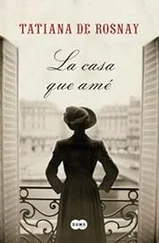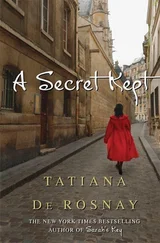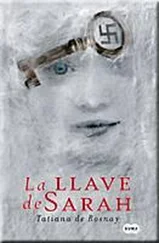As soon as the meeting was over, I went to my little cubbyhole of an office, overlooking the noisy rue Marbeuf. We had cramped working space. But I was used to it. It didn’t bother me. I had no place to write at home. Bertrand had promised I’d have a large room to myself in the new apartment. My own private office. At last. It seemed too good to be true. The kind of luxury that would take some getting used to.
I turned on the computer, logged on to the Internet, then on to Google. I typed, “vélodrome d’hiver vel’ d’hiv’.” The listings were numerous. Most of them were in French. A lot of them were very detailed.
I read for the entire afternoon. I did nothing but read and store information and search for books about the Occupation and roundups. Many of the books, I noticed, were out of print. I wondered why. Because nobody wanted to read about the Vel’ d’Hiv’? Because no one cared anymore? I called a couple of bookstores. I was told it was going to be tough getting hold of the books. Please try, I said.
When I turned the computer off, I felt overwhelmingly tired. My eyes ached. My head and heart were heavy with everything I’d learned.
There had been over four thousand Jewish children penned in the Vel’ d’Hiv’, aged between two and twelve. Most of the children were French, born in France.
None of them came back from Auschwitz.

THE DAY DRAGGED ON, endless, unbearable. Huddled against her mother, the girl watched the families around her slowly losing their sanity. There was nothing to drink, nothing to eat. The heat was stifling. The air was full of a dry, feathery dust that stung her eyes and her throat.
The great doors to the stadium were closed. Along each wall, sullen-faced policemen threatened them silently, hands on their guns. There was nowhere to go. Nothing to do. Except to sit here, and wait. Wait for what? What was going to happen to them, to her family, to this mass of people?
With her father, they had tried to find the restrooms at the other end of the arena. An unimaginable stench greeted them. There were too few toilets for such a crowd, and these were soon out of order. The girl had to squat against the wall to relieve herself, fighting against the overpowering urge to vomit, her hand clapped over her mouth. People were pissing and defecating wherever they could, ashamed, broken, cowering like animals near the filthy floor. She saw a dignified old woman hiding behind her husband’s coat. Another woman was gasping with horror, clasping her hands over her mouth and nose, shaking her head.
The girl followed her father through the crowd, back to where they’d left her mother. They had to pick their way through the throng. The galleries were thick with bundles, bags, mattresses, cribs-the arena black with people. How many, she wondered, how many people here? Children ran through the aisles, bedraggled, dirty, screaming for water. A pregnant woman, faint with heat and thirst, yelled at the top of her lungs that she was going to die, that she was going to die now. An old man collapsed suddenly, flat out on the dusty floor. His blue face contorted and twitched. Nobody moved.
The girl sat down next to her mother. The woman had gone quiet. She hardly spoke. The girl took her hand and squeezed it; her mother did not respond. The father got up to ask a policeman for water for his child and wife. The man replied curtly that there was no water for the moment. The father said that this was abominable, that they could not be treated like dogs. The policeman turned away.
The girl saw Léon again, the boy she had seen in the garage. He was wandering through the crowd, looking toward the great doors. She noticed he was not wearing his yellow star. It had been torn off. She got up, went to him. His face was grimy. There was a bruise on his left cheek, another on his collarbone. She wondered if she looked like that too, tired and battered.
“I’m getting out of here,” he said in a low voice. “My parents have told me to. Now.”
“But how?” she said. “The police will never let you through.”
The boy looked at her. He was her age, ten, but he appeared much older. There was no longer anything boyish about him.
“I’ll find a way,” he said. “My parents told me to go. They took off the star. It’s the only way. Otherwise, it’s the end. The end for all of us.”
Again she felt the cold fear surge through her. The end? Was this boy right? Was it really the end?
He gazed at her, slightly contemptuous.
“You don’t believe me, do you? You should come with me. Take off your star, come with me now. We’ll hide. I’ll look after you. I know what to do.”
She thought of her little brother in the cupboard, waiting. She fingered the smooth key in her pocket. She could go with this fast, clever boy. She could save her brother, and herself.
But she felt too small, too vulnerable to do anything like that alone. She was too frightened. And her parents… Her mother, her father… What would happen to them? Was this boy telling the truth? Could she trust him?
He put a hand on her arm, sensing her reluctance.
“Come with me,” he urged.
“I don’t know,” she muttered.
He backed away.
“I’ve made up my mind. I’m leaving. Good-bye.”
She watched him edge toward the entrance. The police were letting more people in: old men on stretchers and in wheelchairs, endless groups of sniveling children, tearful women. She watched Léon glide through the crowd, waiting for the right moment.
At one point a policeman grabbed him by the collar and threw him back. Lithe and quick, he picked himself up, inching back toward the doors, like a swimmer adroitly fighting the current. The girl watched, fascinated.
A group of mothers stormed the entrance, angrily demanding water for the children. The police seemed momentarily confused, not knowing what to do. The girl saw the boy slip through the pandemonium easily, fast as lightning. Then he was gone.
She went back to her parents. The night began to fall, slowly, and with it the girl felt that her despair, and that of the thousands of people locked in here with her, began to grow, like something monstrous, out of control, a sheer, utter despair that filled her with panic.
She tried to shut her eyes, her nose, her ears, to block out the smell, the dust, the heat, the howls of anguish, the visions of adults crying, of children moaning, but she could not.
She could only watch, helpless, silent. From high up near the skylight, where people were sitting in little groups, she noticed a sudden commotion. A heart-wrenching yell, a flurry of clothes cascading over the balconies, and a thump on the hard floor of the arena. Then a gasp from the crowd.
“Papa, what was that?” she asked.
Her father tried to turn her face away.
“Nothing, darling, nothing. Just some clothes falling from up there.”
But she had seen. She knew what it was. A young woman, her mother’s age, and a small child. The woman had jumped, her child held close, from the highest railing.
From where the girl sat, she could see the dislocated body of the woman, the bloody skull of the child, sliced open like a ripe tomato.
The girl bent her head and cried.

WHEN I WAS A girl, living at 49 Hyslop Road in Brookline, Mass., I never imagined I’d move to France one day and marry a Frenchman. I figured I’d stay in the States all my life. At eleven, I had a crush on Evan Frost, the boy next door. A freckle-faced, Norman Rockwell kid with a retainer, whose dog Inky liked to romp on my father’s beautiful flower beds.
Читать дальше



